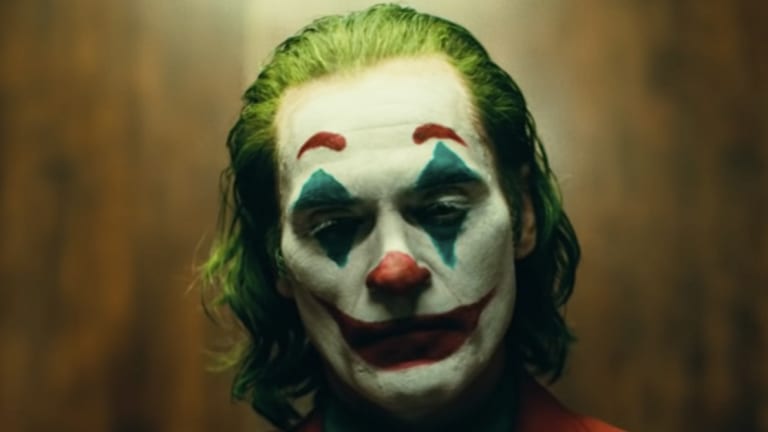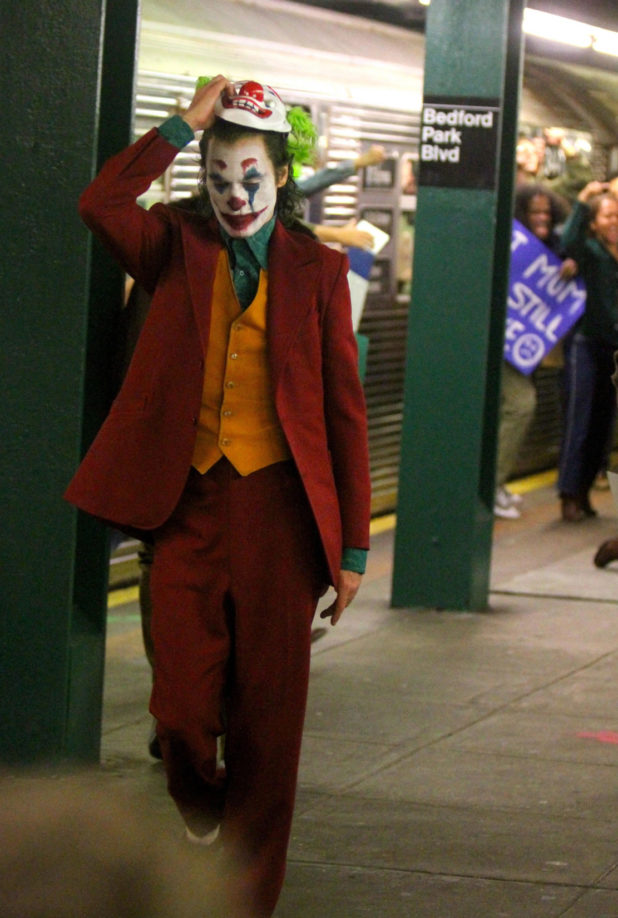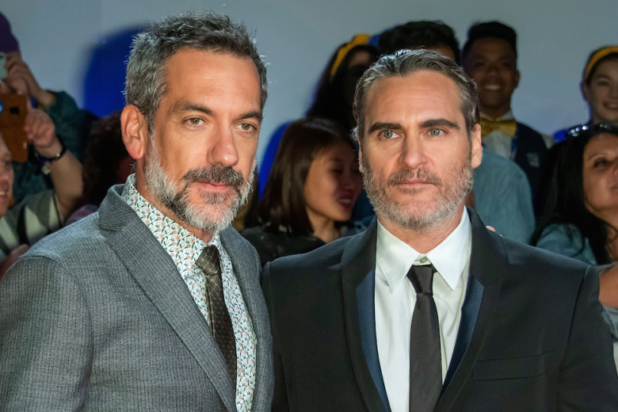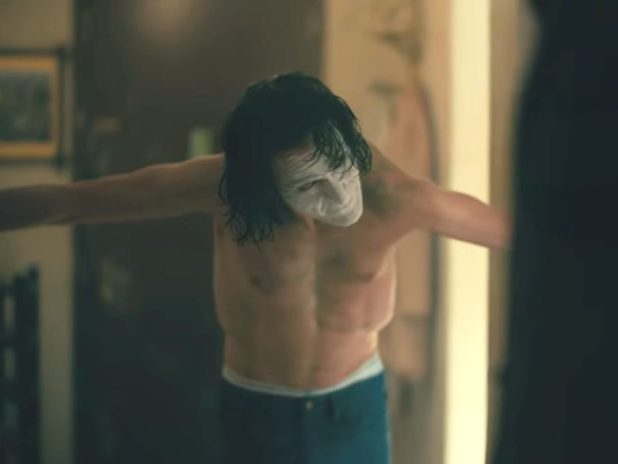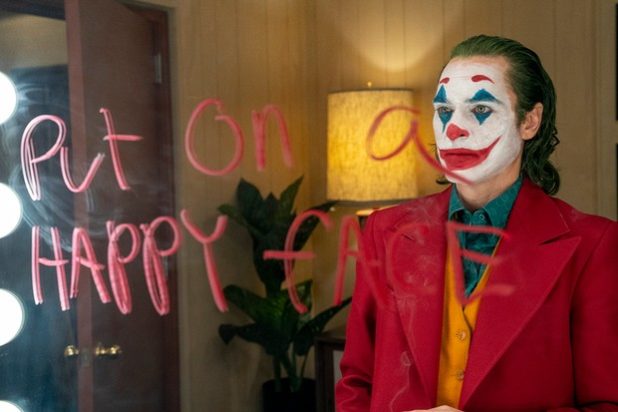Andrew Anglin
Daily Stormer
October 3, 2019
Joker is everything that you could have hoped for. But it isn’t really more than that.
Primarily, the film is visually stunning, from start to finish. The cinematography, the acting, the costumes – every aspect of the aesthetic is perfect.
It is a series of beautiful scenes, which are all the saddest clown world memes of our own broken souls. It is also entirely unapologetic in its sympathetic portrayal of the abused heterosexual white male child of a single mother and an absent father as the ultimate victim of society.
It is also shockingly unapologetic in the way that it justifies violence as an appropriate response of abused white men to what society has done to them. Joaquin Phoenix was asked at a press conference if the film glorifies violence, and he got up and walked out of the room. And that is really the only possible response to that question, because this film does not even bother to attempt to provide any form of plausible deniability: this is a shameless celebration of violence by white men against a society that has abandoned them.
Joker is a love letter to mass shooters.
The film was written and directed by a Jew, Todd Philips, and there is some speculation as to why exactly it is that a Jew would be celebrating heterosexual white male violence against society, but that speculation is beyond the scope of this review.
Phoenix, who is more or less the only character in the film, puts on a brilliant performance. He is a character like nothing you’ve ever seen before, truly. And what he did to emaciate his body for the film really shows a commitment to his art that makes one believe he is as tragic of a person as the character he plays. The way he contorted his emaciated form in these incredible, elaborate scenes was awesome and mesmerizing.
The inversion of tropes, with Joker as the hero and the Wayne Family – and yea, even Alfred Pennyworth himself – as the villains was clever (though the film was very aware of how clever it was, and seemed at times fixated on making sure the viewer understood how clever it was).
However, I do appreciate that “maybe Joker isn’t really the bad guy our children’s stories told us he was” is a nod to “maybe heterosexual white males aren’t really the bad guys society has told us they are.” And truly, there is nothing more subversive than suggesting that perhaps white men are sympathetic and not evil. So on some level, the film does earn the right to grandstand a bit with regards to its own naughtiness. (This reviewer has certainly been guilty of that himself at times, and is not in a place to judge.)
I will also note that the character seemed to be in part based on James Holmes, the mass-shooter who dressed up as the Joker and shot up a movie theater playing the Batman movie. I believe that there were direct references to him, though I will have to watch the film a second time to analyze that aspect further. I appreciate that dimension.
The bad news, and the “nothing more than you’d hoped for” part, is that the film is not very well written. In fact, the film is so poorly written, that I believe that without the context of the hype around the film itself and an understanding of what heterosexual white men are going through in our society, the film’s plot would be largely incoherent and it would just be a series of darkly fantastic images.
Almost no effort at all is put into building up the world of Gotham – the much spoken of “society” in which Joker lives, even whilst it is that society that has put him where he is. We are of course supposed to accept the notion that this is our own society, as that is the point of the film, however, the parts of the society we do see look like early 1980s New York, which is not the society that most of us are familiar with.
Because the setting played a key role in the motivation of the character, disregarding the setting in this manner was a bit shocking.
It was fine to have the grittiness of Gotham be the backdrop, but I would very much have liked to have seen something more than just “people are rude, rich people are mean to poor people, and people fall through the cracks” as part of the environment that created Joker. I would have liked to have seen the drugs, the homelessness, the ethnic conflicts, the doomsday hysteria and all of the rest of the factors I see in my own world reflected in Joker’s Gotham, and the only reason I can imagine why I didn’t see these things is incompetence on the part of the writers.
You then have the problem that there was no character development, really at all, which just felt like a massive lost opportunity. The character of Arthur Fleck does become Joker, but the single developmental aspect of that transformation is that he decides to start killing people as revenge for his life. I would have very much liked to have seen more meaningful changes in the character.
In particular, I was disappointed that when he came off of his medicine, which we would assume are anti-psychotics, there was not a dramatic clearing of his thoughts. This simply seems like such an obvious core element of the story, that it is again shocking that it didn’t happen.
Arthur is sympathetic, in that he is an extreme version of the downtrodden white male, the victim of the single mother and of the system. But he is really just too mentally ill and hysterical for most typical incels to associate very strongly with. I think that losing the drugs, during his transformation from Arthur into Joker, he could have become a character that more of us could see ourselves in. I would have liked to see signs of a new intelligence emerge with the clarity. Such a development would not only make the film more interesting, but it would also make the character make more sense as the arch-nemesis of Batman. The Joker as the arch-nemesis of Batman is a psychopathic madman, but he is also a criminal genius.
Overall, I believe this was a brilliant art film, which would have probably been a bit better if it had an actual story, but which stood on its own fine as a series of brutal, dark emotional scenes, which are likely to resonate with the viewer not because of Arthur Fleck’s story, but because of his own life story.
It’s a shame that Todd Philips didn’t bother to shoot me an email and let me give the script a once-over before he started shooting, but such is life. As Incel: The Movie, I must give Joker 10/10.
Just remember that if you are in the audience and someone starts shooting, you want to lay down and try to roll under the seats. You DO NOT want to try to run for the exit, as you will simply be shot in the back.
Note: I will probably do a more in-depth spoiler-inclusive breakdown next week, after most of you have seen it and I have seen it a second time. There is certainly more to say about this film.
